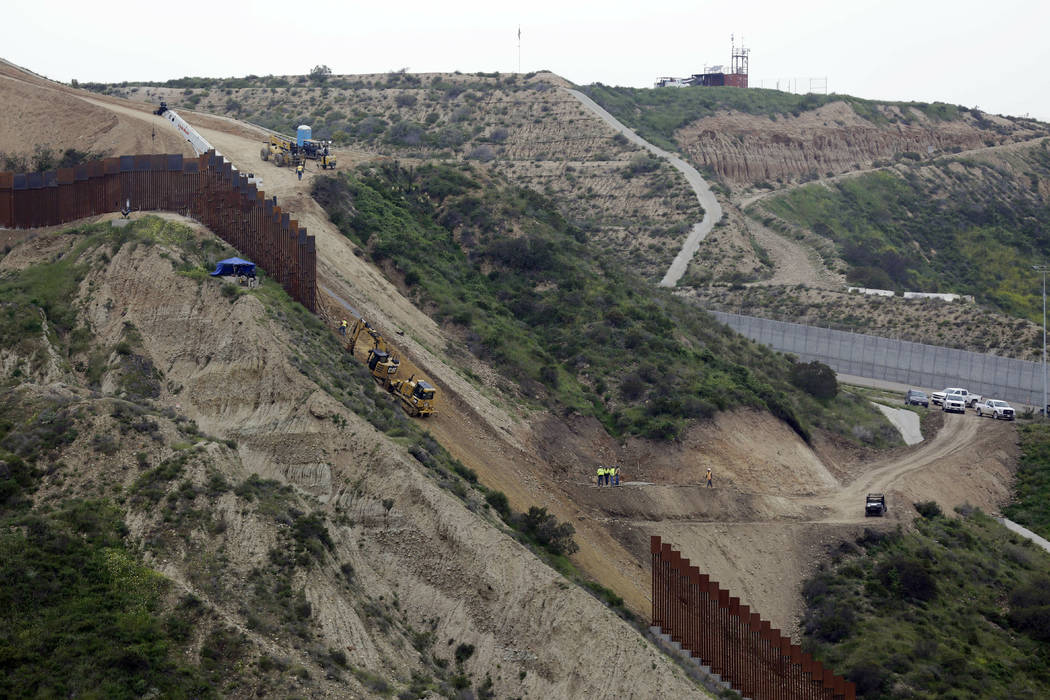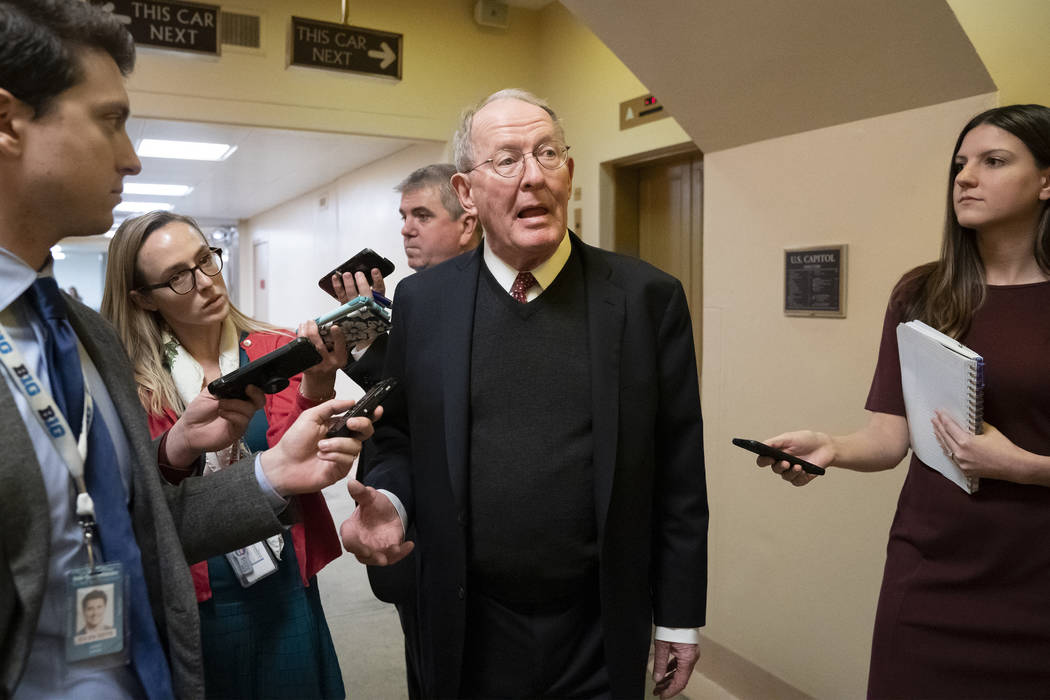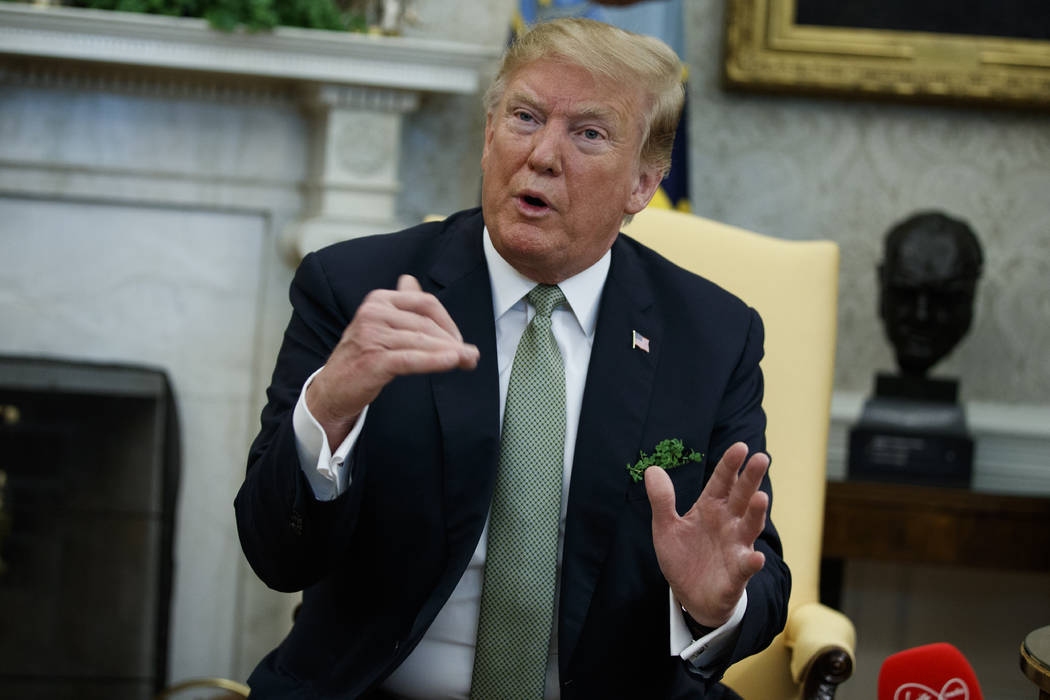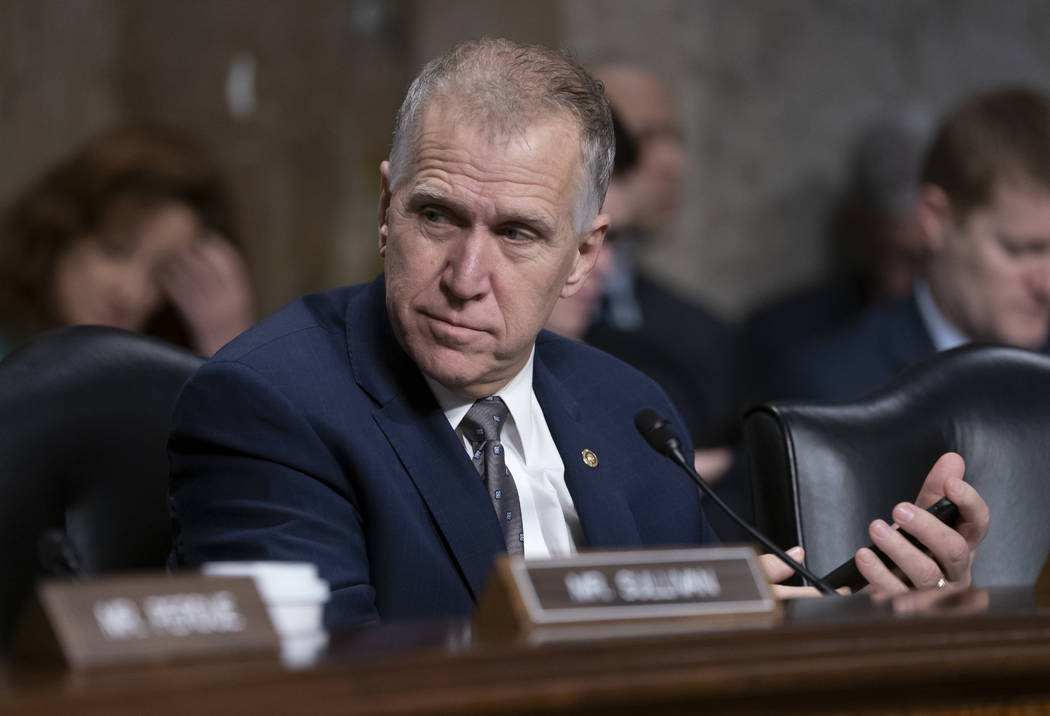Senate votes against Trump’s border emergency declaration
WASHINGTON — One month after President Donald Trump declared a national emergency to build a border wall, the Senate delivered a bipartisan rebuke Thursday and voted to terminate the action.
The 59-41 vote is expected to force the president to issue the first veto of his administration.
“I’ll probably have to veto it. It’s not going to be overturned,” Trump told reporters at the White House moments before the vote.
The number of Republicans who abandoned the president grew after a last-minute attempt to forge a compromise with a bill limiting future use of the National Emergencies Act was scuttled by Trump, prompting conservatives to join Democrats in approving the resolution.
“This declaration is a dangerous precedent,” said Sen. Lamar Alexander, R-Tenn.
Alexander said current Democratic presidential candidates are claiming they could also use a declaration to “tear down the existing border wall, take away guns, stop oil exports, shut down offshore drilling and other left-wing enterprises — all without the approval of Congress.”
Republican Sen. Pat Toomey of Pennsylvania also broke ranks, citing the precedent letting the declaration stand would set for future presidents.
‘Not a normal vote’
Senate Minority Leader Charles Schumer, D-N.Y., urged GOP colleagues to join Democrats and not abandon their fundamental beliefs on presidential powers. He told them not to support Trump out of partisan loyalty.
“This is not a normal vote. This is not a normal day,” Schumer said, adding, “This will be a vote about the Constitution, about the separation of powers.”
The Senate resolution of disapproval, which follows approval in the House, terminates the president’s Feb. 15 declaration of a national emergency. Trump issued the declaration to give him authority to redirect military funds to build a border wall after Congress rejected his request for $5.7 billion.
Nevada Sens. Catherine Cortez Masto and Jacky Rosen voted with fellow Democrats to pass the resolution.
Twelve Republicans joined Democrats, exposing a fissure within the GOP conference.
The House passed the resolution on Feb. 26 by a 245-182 vote. There, 13 Republicans joined Democrats, far fewer than needed for a two-thirds majority to overturn a presidential veto.
Nevada Democratic Reps. Dina Titus, Steven Horsford and Susie Lee voted to approve the resolution. Republican Rep. Mark Amodei voted against it.
Earlier, Trump warned Republicans of the consequences of voting with Democrats on an issue of border security and against a wall that most Republicans support.
But many Republican senators up for election are in swing states with independent voters.
National polls show a majority of likely voters oppose the border wall and many of the president’s immigration policies.
For many Senate conservatives, though, the issue came down to presidential authority and concern that letting the declaration stand would be ceding congressional responsibility under the Constitution to authorize and appropriate federal spending.
Conservatives jump ship
Alexander, Sen. Mike Lee, R-Utah, and others claimed Trump used the emergencies act to usurp power of the legislative branch in commandeering funding to build a wall, a key platform of his presidential campaign.
Senate Majority Leader Mitch McConnell, R-Ky., said the president was operating within the authority of the national emergencies law passed by Congress in 1976. He said he supported the president’s decision, because “there is a clear border security and humanitarian crisis on the southern border.”
But Democrats said the administration had not proven a crisis existed or explained how a wall could better stop illegal entry better than existing fencing and technology that Congress approved to strengthen border security.
“I don’t think we need a wall. I don’t think we need a manufactured emergency that this administration has created to appropriate funds,” Cortez Masto told reporters.
Schumer argued there is no war, natural disaster or disease that has been associated with previous declarations. And he cited Trump’s contradictory comments the day he made the declaration, in the Rose Garden, when he told reporters: “I didn’t need to do it.”
“He lost in Congress and he wants to get around it,” Schumer said.
The president, meanwhile, remained confident that his veto of the resolution would be sustained in the House.
If the House fails to override his veto, the administration would be able to tap $3.6 billion it has identified in military accounts to build portions of the border wall, mainly in south Texas where some segments already have been erected.
Local projects at risk
The military money would come from construction projects at local installations, including $97 million in Nevada for drone facilities at Creech AFB, a helicopter rescue simulator at Nellis AFB and a National Guard readiness center in North Las Vegas.
Trump could also tap $3.1 billion in asset forfeiture funds and military money directed for drug interdiction.
Even if his veto is sustained in the House, the national emergency declaration still faces legal challenges.
Sixteen states, including Nevada, are seeking an injunction in a federal court in California challenging the constitutionality of the president’s action. All but one of those states, Maryland, have Democratic governors.
In addition, lawsuits have been filed on behalf of landowners in Texas who could lose property to the federal government if a wall is built near the Rio Grande.
Contact Gary Martin at gmartin@reviewjournal.com or 202-662-7390. Follow @garymartindc on Twitter.


























